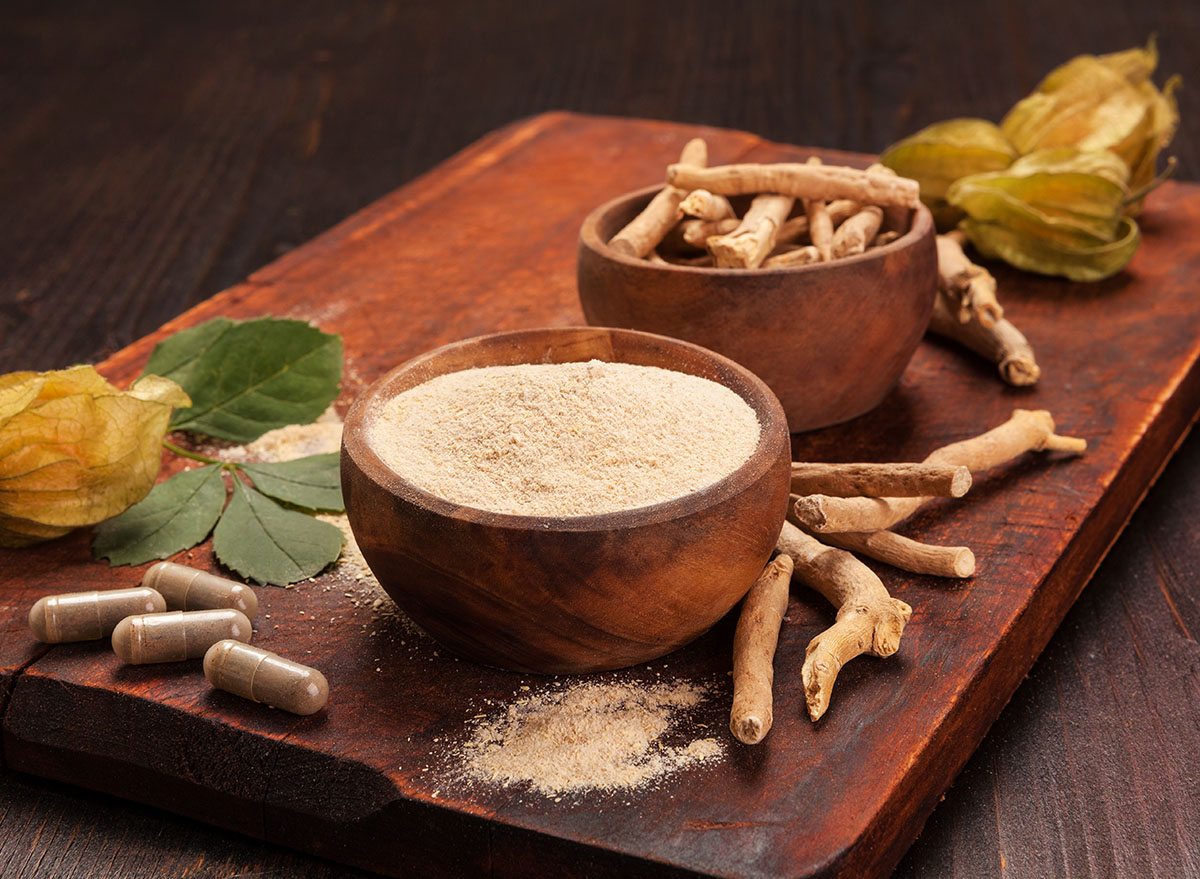By: Julia Guerra
November 6, 2019
If you are someone who struggles with anxiety and/or stress on a regular basis, then you've probably narrowed down a few tried-and-true coping mechanisms that get you through trying times. For some, it's going for a run to override stress with endorphins; for others, free writing in a journal to let the emotions flow out of the body and onto paper. But there might be something adaptogens can do for you in this area, too, especially one called ashwagandha, which is lauded for its ability to reduce both emotional and physical symptoms of stress.
According to Stacey Gillespie, brand director of Gaia Herbs, ashwagandha, or Indian Ginseng, belongs to the nightshades family. More specifically, Dr. Will Cole, leading functional medicine expert, IFMCP, DC, and author of The Inflammation Spectrum and Ketotarian, adds that the medicinal ashwagandha supplements are derived from the root and the berry of the ashwagandha plant, which is native to India.
Also found in Pakistan and Sri Lanka, ashwagandha has 4,000 years of traditional use to its name, and is recognized as a medicinal tonic (easayana) in Ayurvedic medicine, says Gillespie. In fact, medicine hunter Chris Kilham tells us the term comes from the ancient Indo-European language Sanskrit. Broken down, "ashva" means horse, and "gandha" means smell, alluding to the roots' strong odor, Kilham explains.
What are the health benefits of ashwagandha
Per the International Journal of Home Science, ashwagandha is made up of carbohydrates, proteins, very little fat, and a significant amount of crude fiber. It contains iron, calcium, and vitamin C, and, according to The Chopra Center, is loaded with medicinal chemicals including withanolides (natural steroids), alkaloids, choline, fatty acids, amino acids, plus a variety of sugars. Historically, the superherb has been used to treat a variety of health conditions, from high levels of anxiety to improper thyroid functioning.
Ashwagandha might reduce stress and anxiety levels
Whether it stems from overtime at the office, sleepless nights with a newborn, or just trying to juggle life as it comes, everyone experiences stress (some more than others). But let's say running on a treadmill or taking up kickboxing isn't exactly getting out your frustrations, ashwagandha can act as an alternate form of relief.
Research has found that implementing the herbal supplement into your diet can reduce anxiety and stress. For example, a 2012 placebo-controlled study published in the Indian Journal of Psychological Medicine found that cortisol levels of participants that were taking 600 mg of ashwagandha extract daily for 60 days were significantly lower than those who had been assigned a placebo.
Ashwagandha might strengthen your immune system
A 2014 review published in the Journal of Biological Sciences cites a handful of studies that point to ashwagandha as a natural immunity booster. This is in large part due to the withanolides (naturally occurring steroids) found in the root that, per the review, contains antioxidant, diuretic, cardiorespiratory enhancement, and anti-inflammatory properties, among others. Additionally, ashwagandha also contains glycoprotein, protein responsible for antimicrobial activity (aka kills microorganisms before they have the chance to grow/spread in the body).











